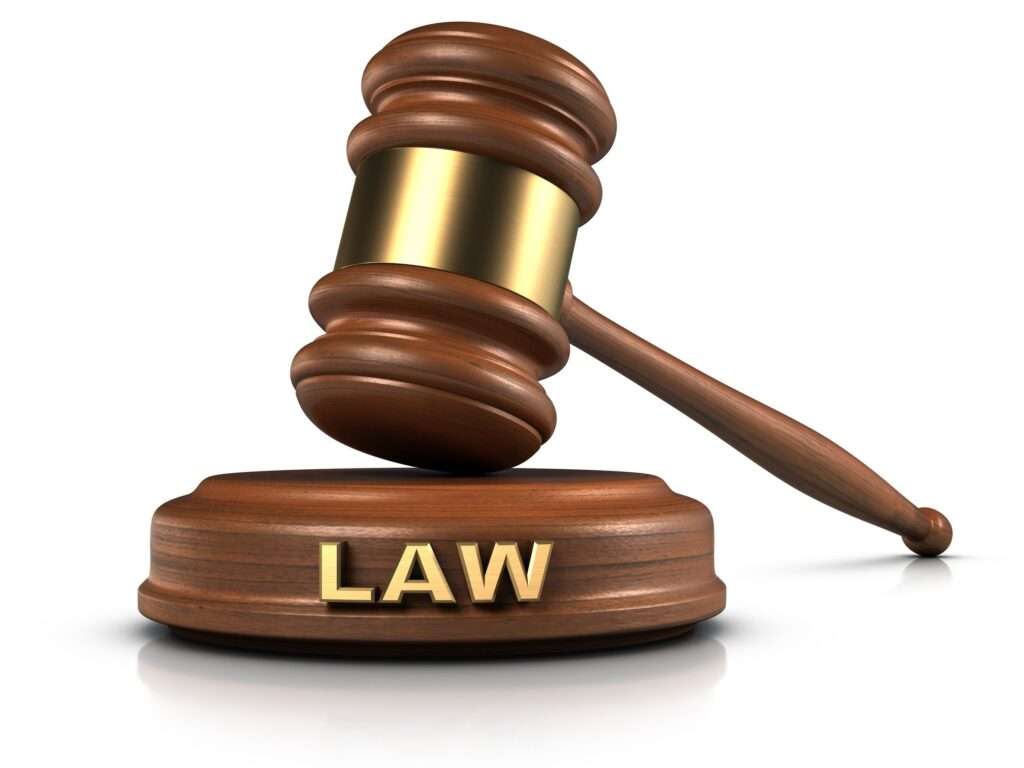This article looks at the the difficulties encountered by the Cameroonian government for the effective application of the principle of separation of powers
The application of the principle of separation of powers in Cameroon has left the government with lots of pressure and stress throughout this singular process.
It has not been a simple task based on several issues most of which are within more than it is out of the nation which is serving as a hindrance and hence posing as a difficulty to the Cameroonian government to effectively implement the principle of separation of powers.
A difficulty faced by the Cameroonian government over the implementation of the principle of separation of powers in Cameroon is the issue of the continuous domination and influence of the executive arm of government over the administration and the absolute and unmatchable power of it leader president Paul Biya.
Further reading:THE PRINCIPLE OF SEPARATION OF POWERS IN CAMEROON
So far so good it is no news that the Executive arm of government has always influenced, dominated and preceded over the Judiciary and Legislative.
This is no good sign for separation of powers. The principle of separation of powers warrants that each arm must be strictly separate and independent from each other.
The independence of the Judiciary as stipulated in article 37(2) was contradicted by article 37(3) stating the president of the republic shall be the guarantor of judicial independence.
This only goes ahead to assign to the president more powers as he had powers to appoint and dismiss ministers at will, powers to appoint magistrates to the bench, and even heads over the judicial council.
The executive arm equally dominates parliaments as it has most often made parliament a rubber stamp.
If the judiciaries functions of interpreting the law is performed by different people from those who legislate them, then the laws are likely to be applied more objectively and impartially but this is not what we see in Cameroon the paper say a different thing and actions manifest different things .
At the background is the Executive that have continuously influence the different arms of government either by influencing parliament assisted by it majority of seats at the national assembly.
The government is still finding it difficult to curb these powers. History has it that if the people who prospectively enacts the laws, deciding what thou shall not do are also the persons respectively determining whether thou has done it,
it becomes very easy for them to confuse the question of whether they would love u to be in jail with the somewhat difference of whether u had actually committed a jail able offence therefore since the executive have been infiltrating both parliament and courts determining a good law from a bad one and a jail able offence from one which is not then the government of Cameroon is likely to face worries to implement the principle of separation of powers.
When Montesquieu wrote his the spirit of law in 1748 he was definitely not thinking of a future generation. His thoughts where enshrined in the few words ‘power should check power’.
This is to the effect that when the Legislative, Judiciary and Executive are joined under same body this maybe a loss of liberty as this may lead to same monarchs and senate to enact tyrannical laws and execute them tyrannically but this again is not what is happening in Cameroon the paper again talks a different thing and the action does another.
The executive have continued their domination over the Judiciary especially. After declaring the elections in 1992to the favor of president Paul Biya ,
the chief justice of Cameroon Alexis Dipanda Mouelle took refuge behind the word ‘my hands are very tight’ who tied his hands remains a matter of public debate, not forgetting the instance of Monday August 27 2012 when the post newspaper reported that the Fornjidam judge confessed that he was under Yaoundé’ pressure and even requested special prayers from the ash bishop of Douala for he was under conscience arrest for sentencing Fornjidam to loss of liberty for life, equally the arrest without charge and imprisonment of justice Nyo Wakai a former justice of La Republique du Cameroun was unjust and domineering by the Executive.
Not leaving out the recent arrest and imprisonment of Marrafa Hamidou Yaya and the process of his trial. His arrest was alongside Chief Ephraim Inoni for corruption but he received an earlier and faster trail and subsequent imprisonment without his co offender smilingly because he post a threat to the regime. if the judiciary was independent why then did the chief in command of armed forces deployed heavy armed troops at the Mfoundi high court each time Marrafa was been tried? Again if the judiciary was independent why then did the troops brutalized and ceased equipments of journalist. The worst is that this extensive dominating attitude of the president caused panic and pressure on the other organs for instance when Amadou Ali states that they were waiting for Paul Biya to depart before they get into real business or when Fame Ndongo says that they were all creatures of Biya this only helps to paint Biya as a demy god.
The above powers and dominating nature of the president of the republic and the organ under him (Executive) is a major problem to the Cameroon government to effectively implement the principle of separation of powers.
Again the Cameroon government is facing as difficulty in applying separation of powers based on the failure of decentralization system in Cameroon .Decentralization is the process of sharing/distributing the powers of the central government to smaller parts of organization around the country .
Decentralization is the creation of the 1972 constitution and since then it has not really been felt throughout the nation. By 1972 there existed centralization of power in the capital city Yaoundé and more precisely at the presidency of the republic though there had been some degree of decentralization since the central government allocated some of it powers to local authorities . But the entire decentralization issue was a failure and with this it became now very difficult to implement the principle of separation of powers in Cameroon.
Amongst the three organs of the state none of them not even one has a heard quarter in any other region of the country. is it the National Assembly, or the Judicial council nor the Presidency all located in Yaoundé complete centralization of powers with this it becomes a dream world as the impact of this principle is not really felt throughout the entire nation.
This provoked the creation of the SDF party in the 90s as an Anglophone civil society party to fight against centralization of powers.
the 1996 constitution in it article 1(2) provides for a highly centralized government but this was not a reality this was because despite pressure to do away with centralization the amended 1996 constitution only maintained the pre-existing system of decentralization of powers through the granting of limited authority or power from the central authority to subordinate regional and local authorities. Apart from municipal councils, today no other territorial unit has regulatory powers.
The very fact that Cameroon has still not been able to achieve decentralization, the government is seemingly to face problems of implementing separation of powers as it could be said that the backbone of separation of powers could be complete not partial decentralization
In addition to the above highlighted difficulty to be faced by the Cameroon government, we can also make mention of the impact of the 1996 constitution as amended in April 14 2008. The constitution brought about drastic changes which have not worked to the favor of concrete implantation of separation of powers in Cameroon.
Among the changes was the increase or uplifting of the powers of the president of the republic. Haven realized that the president of the republic possesses unchallengeable authorities or powers the amended constitution seemingly did not make matters easier as it greatly expanded on the powers of the president.
It article 6(2) extended the term of office of the president from the normal five to seven years and making the post of the presidency eligible for running by Biya as many times as possible. It is even believed that by this it made Biya president for life by many Cameroonians.
Even article 37(2) could not protect the judicial independence from him as it (3) gave him powers to stand as the guarantor of same independence with massive powers to appoint and dismiss cabinet ministers at will and even to appoint magistrates to the bench.
Article 5 (2) of this same constitution made Biya the symbol of national unity therefore he was seen as a regal feature more of demy god.
He is feared by all and his word is law it therefore became difficult if not impossible for the parliament to check him nor the judiciary as even the amended constitution provide that as president he could not be tried for any offence committed while in or out of office as president.
In fact the amended 1996 constitution made President Paul Biya not only a president for life but also a god with immense powers he can collapse and build the judiciary.
It certainly is difficult now for the government of Cameroon to implement the principle of separation of powers.
Again the Cameroon government has not found it easy to implement the all cherished principle of separation of powers within the nation based on corruption malpractices that has plagued the nation.
Including Nepotism and tribalism. Corruption is a dishonest or illegal behavior especially with people in high authority. Nepotism is giving unfair advantages to your own family if you are in position of power especially by giving them job.
And tribalism is an attitude or behavior that are based on being loyal to once man or other social group. All the above concepts have been a great drawback to effective implementation of the principle of separation of powers.
The idea of self-development of one’s area of origin has been a kanka warm in the minds of those in power be it at the Legislative, Judiciary and Executive.
The members of this independent organ are most but often bought over with money and justice on the part of the judiciary only becomes the ‘interest of the stronger party ’.
The corrupt system is evident during Marafa’s trail his lawyers and the court were not able to persuade Micheal Meva Meboutou to tell the whole world who gave him instructions to disburse a whopping sum of 31million USD to GIA.
The Anti Corruption Committee is not as strong as expected.Though an independent body it is still under the supervision of the heard of state as such it becomes an impossibility for the committee then to check Executive corrupt practices effectively.
Nepotism and tribalism has eaten over the fabric of the nation as most top ranking members of the three arms of government are selfishly chosen from within.
It is now all about ‘who knows who’ meritocracy is not virtue anymore with this situation we have cow boys who hijack the nation and the whole issue of competence is not a test anymore to merit position.
Cameroon has been ranked one of the most corrupt systems in the world ranking 38 must corrupt. Corruption is a glaring example right here in Buea with the Mayor certificate under questioning for being illegal.
The very impact about this on the principle and to the government therefore is incompetent and corrupt Legislative, Executive and Judicial officers in powers only make a mockery of the principle and this only falls back to post a difficulty on the government to implement the principle of separation of powers.
The issue of poverty may equally be a problem to the government to implement separation of powers. the failure of decentralization which has impacted on the smooth floor of separation of powers maybe lack of finance by the government to deploy this organs throughout the state territory the poverty the government faces reflect the constant borrowing habit engage by the government to finance certain projects it seems the states resources are not enough to meet up .
Cameroon is equally ranked 150 on the human development index with 48% of its population below poverty line .
In line with this most top members of the government administration take up positions to enrich themselves at detriment of the legal efficacy which separation of powers. Hence the above are seemingly the difficulties likely to be faced by the Cameroon government to implement the principle of separation of powers.




